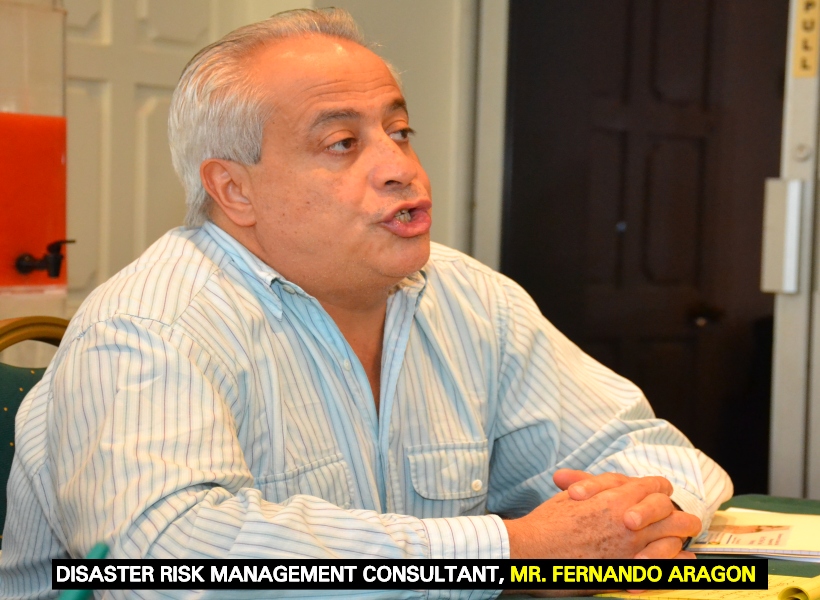There are several issues that must be addressed when drafting a Disaster Risk Management legislation. Among these are: institutional overlapping, preventative actions, the lack of efficient early warning systems and the important role that Information and Communication Technology (ICT) can play in strengthening information management and issues related to
evacuation and relocation actions.
This is according to Disaster Risk Management Consultant, Mr. Fernando Aragon, during his presentation at Disaster Risk Management Legislation consultation yesterday.
The forum, which saw the attendance of stakeholders and international consultants, was aimed at revising the existing Sea and Defence Act and to draft a new Disaster Risk Management Bill. Speaking directly to Disaster Risk Management, Aragon said, “It is very important to be clear on the meaning of all the related concepts…because it is a way of not only framing concepts, but actions when drafting this new Bill.”
The meeting was hosted by the Civil Defence Commission (CDC) which is a beneficiary of financing from the 11 th European Development Fund (EDF) and Services for the Implementation of External Aid 2018 (SIEA) Framework.
Legislative Drafting Expert, Mr. Chris Hedley, addressing stakeholders at the meeting, said that consultations are a key component in developing the legislation because it provides a different perspective at both the regional and local levels, which would aid in providing a more integrated perspective in the development of the Bill.
“We want to, in our consultations with stakeholders, start with a blank page because there is already a lot happening here [in Guyana]. We think it is worthwhile getting into each region as each region presents particular…disaster and emergency threats,” he said. Head of the Office of Climate Change (OCC), Mrs. Janelle Christian, said that the development of the Disaster Risk Management draft legislation should be looked at from a perspective of prevention to determine Guyana’s vulnerability levels through incidence occurrence indicators
to assess the economic cost of disasters. “I really do believe that we have to have a comprehensive look at what has been the damage and really putting a value to that. What are the implications going forward? It is important for us to understand the risk factors and vulnerability,” she said.
The meeting also sought to highlight potential disasters, stakeholders’ roles in planning and prevention, and defining levels or ownership and responsibilities of various sectors. Stakeholders were informed that the forum was designed to deal primarily with focus groups and regional consultations within each region. The consultants are working to complete the technical draft of the Bill to be presented to the Government by November 30, 2018.









